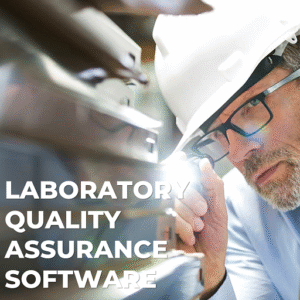What Is Quality Control Software and Why Does Your Lab Need It?

Introduction
In laboratories where accuracy, compliance, and efficiency matter most, manual quality checks often create bottlenecks and errors. That’s why more organizations are turning to Quality Control Software to streamline testing, automate checks, and ensure consistent outcomes. Understanding what is quality control software and why does your lab need it helps labs move beyond paper-based systems to smarter, data-driven operations.
What Is Quality Control Software?
Quality Control (QC) Software is a digital solution that manages, monitors, and ensures the accuracy of laboratory processes. It integrates with lab equipment, automates workflows, and centralizes data, reducing the risk of human error. The software provides real-time insights, enforces compliance with standards, and ensures every test meets set quality benchmarks.
Why Your Lab Needs It
1. Accuracy and Reliability
Manual processes are prone to error. QC software standardizes checks, ensuring results are reliable every time.
2. Regulatory Compliance
It helps labs meet FDA, ISO, and GLP/GMP requirements with built-in documentation and audit trails.
3. Efficiency and Speed
Automated checks reduce turnaround times and help labs process more samples without compromising quality.
4. Centralized Data Management
All test results and records are stored digitally, making them easy to retrieve for audits or research.
5. Proactive Issue Detection
Analytics tools flag deviations early, helping labs take corrective actions before issues escalate.
Key Features to Look For
-
Integration with lab equipment and LIMS
-
Automated validation and alerts
-
Audit-ready documentation
-
Role-based access control
-
Real-time reporting dashboards
-
CAPA (Corrective and Preventive Action) tracking
Industries That Benefit
-
Pharma & Biotech: Ensures product safety and compliance with international regulations.
-
Food & Beverage: Maintains quality across production and packaging.
-
Chemical Labs: Tracks consistency in formulations and safety compliance.
-
Clinical Labs: Reduces risks in patient testing and diagnostic processes.
Conclusion
Quality assurance is no longer optional—it’s a necessity for every modern laboratory. With Quality Control Software, labs can enhance accuracy, meet compliance standards, and boost efficiency, all while reducing risks. That’s why knowing what is quality control software and why does your lab need it is essential for staying competitive in regulated industries.
QHSE SOFTWARE SOLUTION
Laboratory Quality Assurance Software
QC Plans of Laboratory Quality Assurance Software
Features of Laboratory Quality Assurance Software
Benefits of Laboratory Quality Assurance Software
Support for Laboratory Quality Assurance Software
FREE demo of Laboratory Quality Assurance Software
CONTACT
Akshar Management Consultant
+91-9909979870
